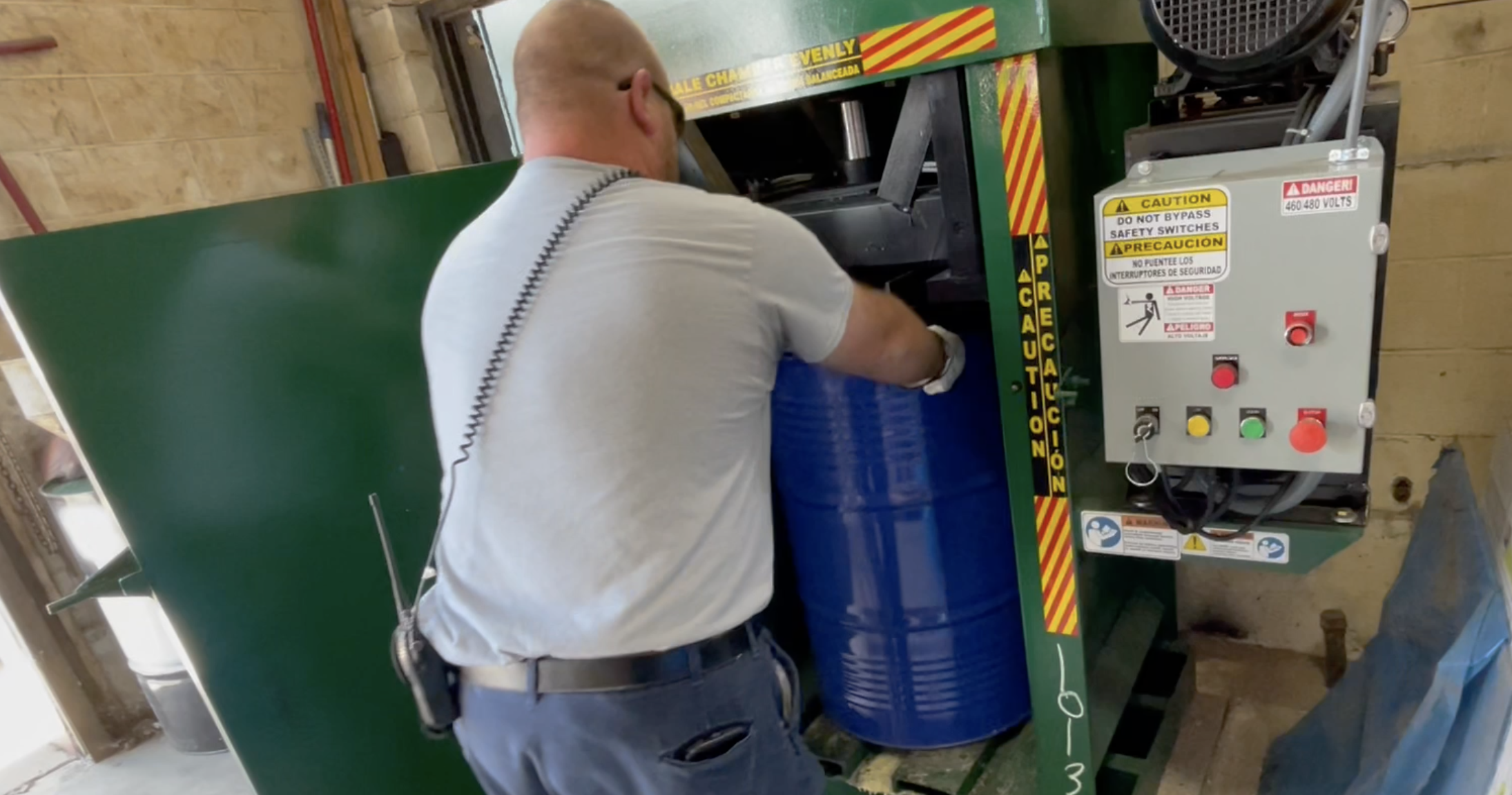As the world battles to put COVID-19 into its collective rear-view mirror and navigate a ‘new normal’ many additional challenges have come to the forefront. The group at the Chemical Processing Plant in Fort Wayne (Ind.) has confronted several head on, including an unexpected stockpile that required a creative solution.
The stockpile, as it were, was a large cache of used steel barrels. The problem was not that they existed—because they always have—the problem was that the barrels were previously part of a circular economy of reuse, but with COVID issues, the supply company simply stopped picking up the used product for reuse.
Enter Greg Bosk, the Energy Technology Engineer for Essex Furukawa, and Vanesa Scott, Chemical Processing Operations Manager. The pair of leaders, along with her team—which had previously worked on a phenolic reformulation that is helping to reduce environmental impact on many of our product enamels—shifted focus to find a way to turn the barrel surplus into a recycling opportunity.
Bosk said that getting an industrial baler that can be used for crushing most anything for recycling was a stopgap to a growing problem: the barrels were simply taking up too much space in the warehouse. He added that while the plan was to simply crush, recycle and reclaim that space in the building there has been a secondary—but noticeable—gain made on the floor of the plant.
“The solution has been great on many levels,” he said. “Obviously the intended consequence of recycling the barrels and adding workable space back was met, but we noticed that people wanted to be one to do the crushing.
“It may seem like a throwaway task to some but to many others there is that rush of excitement when that baler gets going and all the power just flattens a barrel. That created more of a buy-in because it is fun; not forced.”
Bosk said that he and the team lead by Scott have continued looking to identify more inefficiencies that can lead to improvement. Bosk often will find himself going around the floor at the plants and warehouses getting ideas from the people who are living the job. He said that he has gotten ideas from literally every location he has visited.
“They really are into things here at Chemical Processing,” Bosk said. “They are leading the way on Vision 2030 initiatives. They take pride in their facility. They take pride in our operation. It’s a very clean, well-run facility. People care about their job there. They care about their quality.”
There is positive, measurable impact by the new process even if the stopgap solution is not ideal going from a circular economy to a recycling economy. The full measurement of impact elevates what may seem like a simple solution into something that can drive big results according to Austin Robinson, Sustainability Project Manager for Essex Furukawa.
“Sometimes it does not take a groundbreaking idea to make a big difference,” she said. “Often it is as simple as looking around and not only realizing ways to create improvement and positive momentum but having the support system around you to feel confident in speaking up.
“Ideas like this may go without mention if employees do not feel like there is a collective effort, and that everyone is bought in. This says so much about our employees but also their leadership inside the plant.”
Employees across the globe have embraced sustainability and the goals of Essex Furukawa’s Vision 2030. We recently released our first annual Sustainability Report, as well as announced Carbon Reduction targets in association with Vision 2030. Initiatives like this—and others that we will be announced in support Vision 2030—will lead Essex Furukawa into the next decade.

